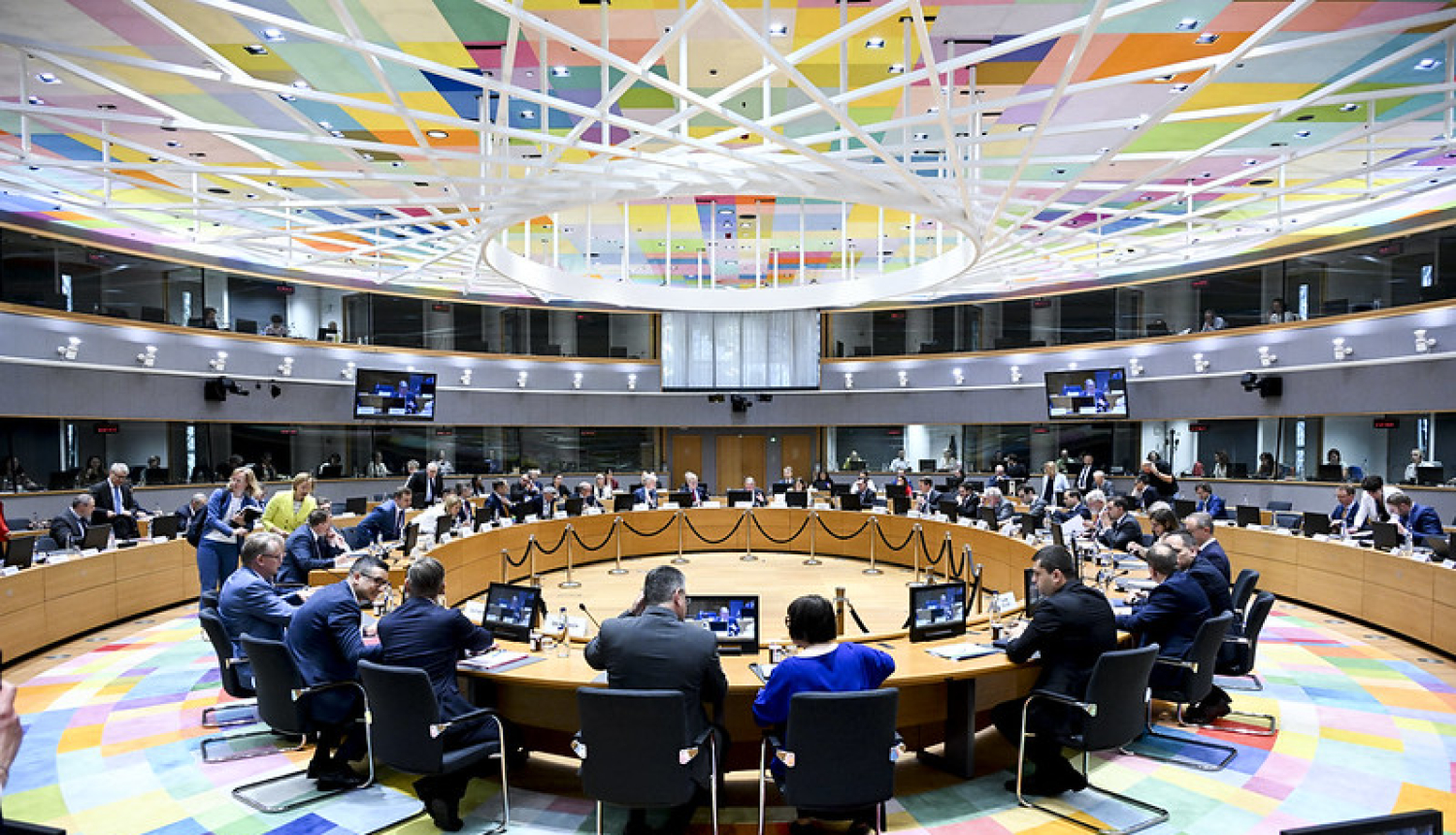“Trade negotiations with the U.S. must continue. The number one option and priority for the EU must be negotiated solutions to a strong transatlantic trade partnership,” the Parliamentary Secretary of the Ministry of Foreign Affairs, Artjoms Uršuļskis, underlined at the meeting of the European Union trade ministers in Brussels on 14 July 2025. The meeting focused on EU–U.S. trade relations, the state of play in the EU’s trade talks, and EU–China trade relations.
The Parliamentary Secretary called on the European Commission to continue to engage in a pragmatic way with the U.S. administration in order to reach an agreement on solutions for improving trade relations between the EU and the U.S. “At the moment, every effort must be made to avoid the escalation of trade tensions and an increase in tariffs on EU exports,” Artjoms Uršuļskis noted.
In view of current developments and changes in global trade, it is in Latvia’s interests that the network of EU trade agreements is expanded by adding new, strategically important trade agreements and sector-specific partnerships. The Parliamentary Secretary called for every effort to be made to rapidly advance trade talks with Latin America, the countries of Southeast Asia (ASEAN), the Indo-Pacific and the Gulf regions.
Artjoms Uršuļskis expressed Latvia’s support for the agreements reached with Mercosur and Mexico, while advocating their signing and ratification as soon as possible. He welcomed the start of negotiations with the United Arab Emirates and the resumption of talks with Australia.
At the same time, the Parliamentary Secretary underlined the need to further limit the EU’s trade ties with the aggressor countries Russia and Belarus. He called on the European Commission to work on further proposals for raising tariffs on an even wider range of goods.
In an exchange of views on EU-China trade relations, Artjoms Uršuļskis said that Latvia was interested in maintaining pragmatic relations with China: “The EU and China must continue working towards tangible results to promote mutually beneficial and equitable economic cooperation.”
Background information
The EU Foreign Affairs Council in its Trade configuration deals with the EU’s trade relations with third countries, including trade in goods and services, the commercial side of intellectual property rights, the aspects of international public procurement and the foreign direct investment rules. The meetings are chaired by the minister in charge of trade matters of the country holding the presidency of the Council of the EU.
The EU has one of the largest trade agreement networks in the world, comprising over 40 trade agreements with more than 75 partner countries. The latest political consensus has been reached on agreements with Mercosur (Argentina, Brazil, Paraguay, Uruguay), Mexico, and Indonesia. Negotiations on the signing of an agreement are ongoing with India, Philippines, Malaysia, Thailand, the United Arab Emirates, and other countries. In addition, the European Commission is also working on new, innovative and strategic forms of cooperation, including sustainable investment facilitation agreements, critical raw material and digital trade partnerships, and Trade and Technology Councils.




